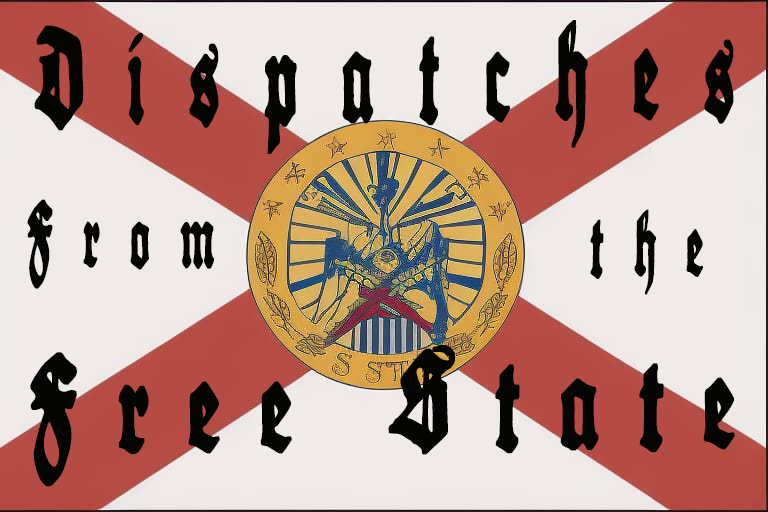v:* {behavior:url(#default#VML);} o:* {behavior:url(#default#VML);} b:* {behavior:url(#default#VML);} .shape {behavior:url(#default#VML);}
Neoliberalism is a scam. Our adherence to free market principles as presented by the political elite since the so called Reagan Revolution was that of blind faith. We really wanted it to be morning in America. We really wanted simple solutions to the problems that otherwise seemed overwhelming. The Neoliberals offered us that hope. There was a simple solution to all social illsthe free market. Some pretty brainy guys seemed convinced that all we had to do was give ourselves over to free market principles, and let the economists run the worldso we did. As is the case with all instances of blind faith, be it political, religious, or economic our devotion was betrayed.
Neoliberal worship required adherence to certain articles of faith. First, economists sermonized that the free market was a universal good. This pillar of the free market was held to be sacrosanct, and any contradiction was dismissed as socialist heresy. It was considered gospel that private enterprise could perform all services better and more efficiently than government institutions regardless of many examples to the contrary, like Medicare, and the GI Bill.
We were conned into offering up services that were held in the public trust as sacrifice to the Free Market Gods. We privatized. As a consequence, we placed matters of public interest into the hands of those driven by profit rather than the common good. Issues that had no business in the hands of investors were suddenly subject to profit motive. War, crime, health, and the complex social phenomena that drive these issues were rationalized as a means of making money. Yet we never thought , and were never educated by the so called experts, that privatizing our social problems carried innate costs.
The second gospel of Capitalism was rooted on the premise that economic growth was innately positive. Indeed, in many areas this was true, and was the driving force behind tremendous production and wealth. Growth in and of itself, however, proved costly. As in physiology, rampant growth in a society can become cancerous, destroying the very fabric it was designed to maintain.
Hence, the ultimate paradox of American policy. Neoliberalism applied to such things as war, crime and health, was driven by capitalist ideology. Meanwhile, capitalism was rooted in wanton growth. Consequently, when capitalism was applied to social ills, it lead to the extension and entrenchment of those problems, not their cure. After all, theres no profit in shrinking problems.
War
v:* {behavior:url(#default#VML);} o:* {behavior:url(#default#VML);} b:* {behavior:url(#default#VML);} .shape {behavior:url(#default#VML);} 
In 1960, President Eisenhower, certainly no left wing radical, warned us against the impending danger of allowing the newly consecrated military industrial establishment unwarranted influence, whether sought or unsought, in the councils of government. With nothing short of profound prescience he stated, The potential for the disastrous rise of misplaced power exists and will persist.
Americas industrial sector was invaluable during World War II. It was largely responsible for the Allied victory over Germany and Japan. However, in four years of war, military industries became entrenched institutions. As such their primary goal was to find a permanent function and place in American society.
Ike knew, however, that by putting war into the hands of private interests there was the danger that war would become more prevalent. If war was for profit, and the argument could be made that it always was, then those who stood to reap the benefits of that profit would promote war, not deter it. If such profiteers had excessive lobbying influence in government, then we could expect to be in a constant state of warfare.
Certainly Ike would hang his head if he saw the America that has developed since his famous fair-well address. The United States has been on a constant war footing since World War II even when there was no one to be at war with. At first we were convinced that we had to protect ourselves from the Communists and Soviet expansion, even if that meant interfering in the sovereignty of other nations. When the Soviet Union fell and leaving America the only Super Power we simply had to be at war with someone; the war market needed growth. We declared war against drugs, terrorism, tyranny and all sorts of boogey-men, which wise investors knew the world would not soon be without.
We invest heavily in defense. Yet the technologies we invest in are of little use against the small time hoods we claim to need defense from. The US also spends billions of tax dollars on technologies that do not and cannot work like SDI and the V22 Osprey. Currently the US investment in defense is over $700 billion and rising. This figure constitutes over 47% of the entire worlds defense spending to defend 5% of the worlds population (janes.com). We spend more than the next thirty countries combined and ten times more than the next highest investor.
When I say invest, I mean it literally. Standard and Poors 500 has an Aerospace and Defense Index cited by Washington Posts Renae Merle, The Iraq war may be politically unpopular, but it has been a boon for the defense industry (7/15/2007). According to William Fisher at the Global Policy Forum, about 20% of defense funding in Iraq alone goes to private contractors. The Center for Corporate Policy claims that private Department of Defense contracts exceeded $269 billion in 2005.
Eisenhower also said that every gun that is made, every warship launched, every rocket fired, signifies in the final sense a theft from those who hunger and are not fed, those who are cold and are not clothed. The world in arms is not spending money alone. It is spending the sweat of its laborers, the genius of its scientists, the hopes of its children. True but, suggested the Neoliberals, the profit margin just couldnt be beat.
v:* {behavior:url(#default#VML);} o:* {behavior:url(#default#VML);} b:* {behavior:url(#default#VML);} .shape {behavior:url(#default#VML);}
This area of private investment is among the most lucrative in the world. The councils of government are now chock full of those who profit immensely from warfare. The free marketplace of war is expanding with the advent of perpetual war. According to Gore Vidal, the United States has a history of over two hundred and fifty military adventures between the advent of the military industrial complex and 9/11. This does not include the countless civilian paramilitary operations (Perpetual War for Perpetual Peace) Add on top of that corporate mercenary groups like Blackwater and their private soldiers slaughtering with impunity and raking in profit. Over 700 US military bases span the globe (Mother Jones: Brzezinski Talks Bases 8/22/2008). How many of them have private service contracts with American companies? And the profit opportunities just go on and on.
Prison
So lets take the same strategy that weve applied to war, a strategy that resulted in an increase in combat operations, and apply it to corrections. Certainly private enterprise can handle the function of prisons more efficiently than the famously bureaucratic government. Simply take all prisons and put them in the hands of private investors to run for profit. Profit motive will keep expenditures in check and the public will get a break.
This sounds all well and good and is a tremendous selling point for private corrections companies when marketing their services to local and state governments. And their pitch is working. Corrections is a growth industry as states are plagued by overcrowded prisons. Private industries like Wackenhut and Corrections Corp of America offer the opportunity to lock up more prisoners for less cost. Of course, the idea of locking up less prisoners is off the table. After all, tough on crime policies play well to the electorate.
Profit in corrections, however, is based on two variables: increasing the number of inmates incarcerated and reducing expenditures. Can an industry dedicated to increasing the inflow of criminals serve the public interest?
Imagine that you are the CEO of a private correctional facility. You know that every prisoner you house is money in the bank. What kind of policies are you going to support? You are going to support policies that mandate jail time for as many offenses as possible. A sixteen year old busted for marijuana possession? Lets lock him up. Thatll learn im and make me a buck or two. Youll want those who are locked up to remain locked up for as long as possible so youll support minimum sentencing policies. Policies such as treatment, probation and even decriminalization would not be in the best interest of your stockholders. Indeed, youll want more things to carry the criminal label. (Unless, of course, those labels could be applied to your stockholders)
Recidivism? Well you have absolutely no incentive in reducing recidivism. When an inmate returns to your facility you hear the sounds of dollars flapping. Besides, programs that reduce recidivism, education, life skills and work programs, cost money and you have your stockholders to think about.
Regarding the prisoners, cutting costs is the business plan. Corners are cut on education, life skills and counseling programs, but also on food and even staff and guards. According to a study done by the Bureau of Prisons in 2005, private facilities have more inmates per guard and per staff member. This reduces security and effectiveness. Private prisons also provide less treatment, counseling and education for inmates (Quality of Operations at Private and Public Prisons: Using Trends in Inmate Misconduct to Compare Prisons). Mothers Jones did an extensive investigation noting exploitative policies among private prisons in the interests of cutting costs and boosting profits.
So crime does pay…prison owners. However, can a society benefit from an institution that actually profits from crime? The United States has the highest prison population and imprisonment rate in the world. Imprisonment rates have been growing for many years despite a fifteen year trend of falling crime rates.
Medicine
If theres an area that is really feeling the capitalist pinch its health care. What do we expect? We have designed a system in which illness means profit. Are people becoming doctors because they want to treat the sick and heal the wounded, or are they interested in retiring by the time they are forty? Which doctor would you rather have? The free market economist would have you believe that the later is the better bet. After all, a doctor motivated by profit will deliver the best service at the best possible price. Its Economics 101.
But we all know thats not how it works. As the demand for medical services increases, a phenomenon that happens in conjunction with increased technologies and innovations as well as an aging population, the cost of medical care increases. It is now impossible for most Americans to afford even the most basic medical care. We must, therefore, turn to private insurance companies. And here we have the ultimate medical industry catch-22. As medical costs increase, so does the demand for insurance. As the demand for insurance increases, so does the cost of insurance. The result? Insurance is an unreasonable expense for over 45 million Americans! (Center on Budget and Policy Priorities).
The same rules apply. To make a profit demand must grow. Aging Boomers expecting health care are a good source of medical growth, more treatments, more tests, more things that require a doctors care. (Insurancenewsnet.com). At the same time we must cut expenses. That means less services, less nurses and other support staff who could supervise our health and make our lives a little better in the event that we really do get sick. According to the American Association of Colleges of Nursing, despite increasing demand for services, a nursing shortage continues to grow.
Then theres the pharmaceutical industry. Pill makers dont just make medicine anymore, they make markets. In the last generation children who had a difficult time paying attention were defined as having Attention Deficit Disorder. OK, maybe! The pharmaceutical companies were there with a chemical treatment. Within a generation every child who could be given meds for ADD was. In fact, this is an overstatement as some research shows that ADD medication is more than 90% over-prescribed. But remember, capitalism is based on growing markets. When the child market for stimulants was saturated we learned about Adult Attention Deficit Disorder. Imagine that. At the same time, Ritalin and other ADD meds were being prescribed for younger and younger kids (breggin.com).
Its better medicine through marketing, and your health has nothing to do with it. Thats how we market anti-depressants that raise suicide rates. Thats how were obsessed with cholesterol despite a profound lack of evidence that cholesterol is problematic. A whole slew of meds have been approved by the rubber stamp Food and Drug Administration. Then we discover that the companies that marketed these often toxic cures knew all along that they were either ineffective, dangerous or unnecessary.
Its also about marketing to the right people people with money. Today millions of children around the world die from and are disfigured by preventable illnesses, illnesses like small pox, polio, tuberculosis and dysentery that are all but eliminated in wealthy countries. The medicines are no longer being produced, for the costs of production, transportation and distribution are too high and the potential returns are too low to justify investment. Theres just no profit in curing poor people. Theres plenty to be made in erectile medication! But not for poor people.
Youve heard to the point of brainwashing that without free market principles there will be no innovation, no invention, no motivation. The health industry will stagnate and we will all be worse off. Thats an interesting argument if it wasnt contradicted by every industrialized nation in the world! Ours is the only developed society that uses free market principles to guide our health care, and yet our health standards dont even come close to those of the reviled welfare states in Europe and Canada. (CDC, WHO)
Capitalism is the Problem
The United States has instituted the worst possible ideology if its interested in making a better life for its citizens. Weve create a defense industry that profits from war, a corrections industry that profits from crime and a health industry that profits from illness. We are now on a course for privatizing schools, creating an industry that profits on ignorance; let alone the economic industries that profit by destroying our economy. How did we allow blind faith in free markets to blind our good, common sense?
By now its obvious that weve been conned. The free market is not the solution. In fact, when you look at the track record the strongest argument is that the free market is a large part of the problem.
Endnote:
v:* {behavior:url(#default#VML);} o:* {behavior:url(#default#VML);} b:* {behavior:url(#default#VML);} .shape {behavior:url(#default#VML);}
Theres some controversy over the claim that 45 million Americans are uninsured. The Business and Media Institute refutes this figure, putting the real figure at about 10 million. To arrive at this figure they exclude non-citizens, those who, according to Business and Media, should be able to afford insurance but opt not to carry it, and those who are not currently insured but will be in a few months. On the other hand, the CDC reports that over fifty million Americans spend at least part of the year uninsured. This argument is, of course, silly. Even if the number is only 10 million, how many Canadians are uninsured? It also ignores the fact that even among those who have insurance, many still cannot afford medical care due to high deductibles, co-pays and conditions that are not covered. The fact remains that if we accept that access to health care is a right, not just a privilege (and Agitate makes this claim), then medicine does not belong in the private sector.





Leave a comment